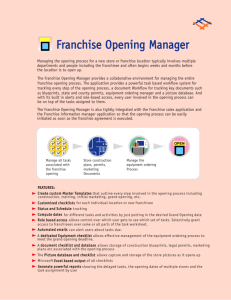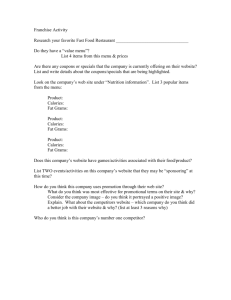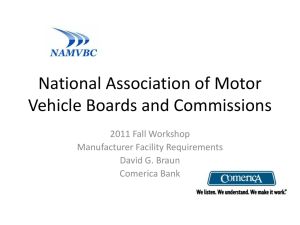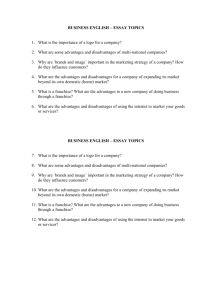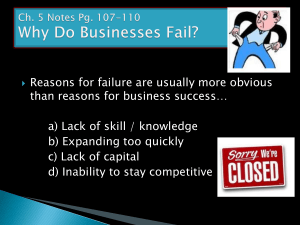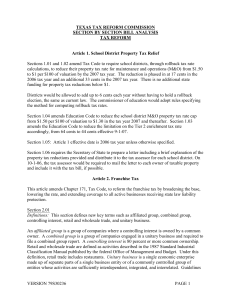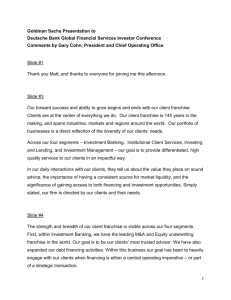bill analysis - Texas Legislature Online
advertisement
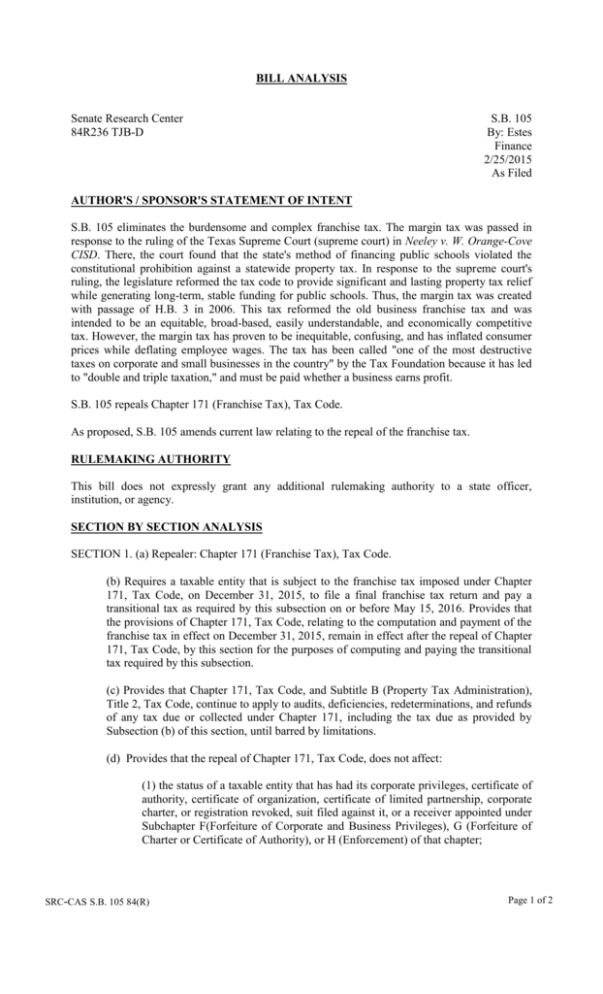
BILL ANALYSIS Senate Research Center 84R236 TJB-D S.B. 105 By: Estes Finance 2/25/2015 As Filed AUTHOR'S / SPONSOR'S STATEMENT OF INTENT S.B. 105 eliminates the burdensome and complex franchise tax. The margin tax was passed in response to the ruling of the Texas Supreme Court (supreme court) in Neeley v. W. Orange-Cove CISD. There, the court found that the state's method of financing public schools violated the constitutional prohibition against a statewide property tax. In response to the supreme court's ruling, the legislature reformed the tax code to provide significant and lasting property tax relief while generating long-term, stable funding for public schools. Thus, the margin tax was created with passage of H.B. 3 in 2006. This tax reformed the old business franchise tax and was intended to be an equitable, broad-based, easily understandable, and economically competitive tax. However, the margin tax has proven to be inequitable, confusing, and has inflated consumer prices while deflating employee wages. The tax has been called "one of the most destructive taxes on corporate and small businesses in the country" by the Tax Foundation because it has led to "double and triple taxation," and must be paid whether a business earns profit. S.B. 105 repeals Chapter 171 (Franchise Tax), Tax Code. As proposed, S.B. 105 amends current law relating to the repeal of the franchise tax. RULEMAKING AUTHORITY This bill does not expressly grant any additional rulemaking authority to a state officer, institution, or agency. SECTION BY SECTION ANALYSIS SECTION 1. (a) Repealer: Chapter 171 (Franchise Tax), Tax Code. (b) Requires a taxable entity that is subject to the franchise tax imposed under Chapter 171, Tax Code, on December 31, 2015, to file a final franchise tax return and pay a transitional tax as required by this subsection on or before May 15, 2016. Provides that the provisions of Chapter 171, Tax Code, relating to the computation and payment of the franchise tax in effect on December 31, 2015, remain in effect after the repeal of Chapter 171, Tax Code, by this section for the purposes of computing and paying the transitional tax required by this subsection. (c) Provides that Chapter 171, Tax Code, and Subtitle B (Property Tax Administration), Title 2, Tax Code, continue to apply to audits, deficiencies, redeterminations, and refunds of any tax due or collected under Chapter 171, including the tax due as provided by Subsection (b) of this section, until barred by limitations. (d) Provides that the repeal of Chapter 171, Tax Code, does not affect: (1) the status of a taxable entity that has had its corporate privileges, certificate of authority, certificate of organization, certificate of limited partnership, corporate charter, or registration revoked, suit filed against it, or a receiver appointed under Subchapter F(Forfeiture of Corporate and Business Privileges), G (Forfeiture of Charter or Certificate of Authority), or H (Enforcement) of that chapter; SRC-CAS S.B. 105 84(R) Page 1 of 2 (2) the ability of the comptroller of public accounts of the State of Texas, secretary of state, or attorney general to take action against a taxable entity under Subchapter F, G, or H of that chapter for actions that took place before the repeal; or (3) the right of a taxable entity to contest a forfeiture, revocation, lawsuit, or appointment of a receiver under Subchapter F, G, or H of that chapter. SECTION 2. Effective date: January 1, 2016. SRC-CAS S.B. 105 84(R) Page 2 of 2



